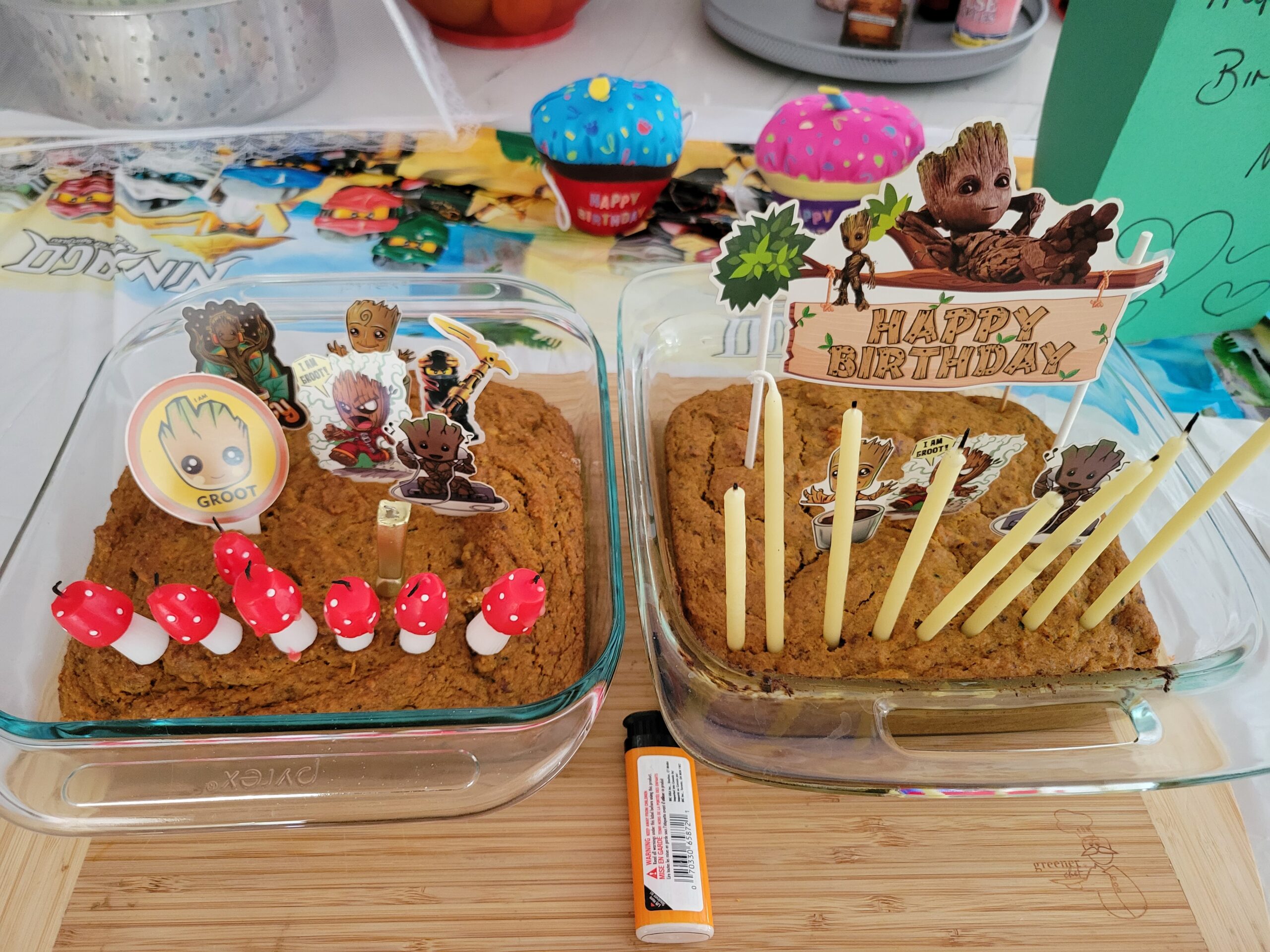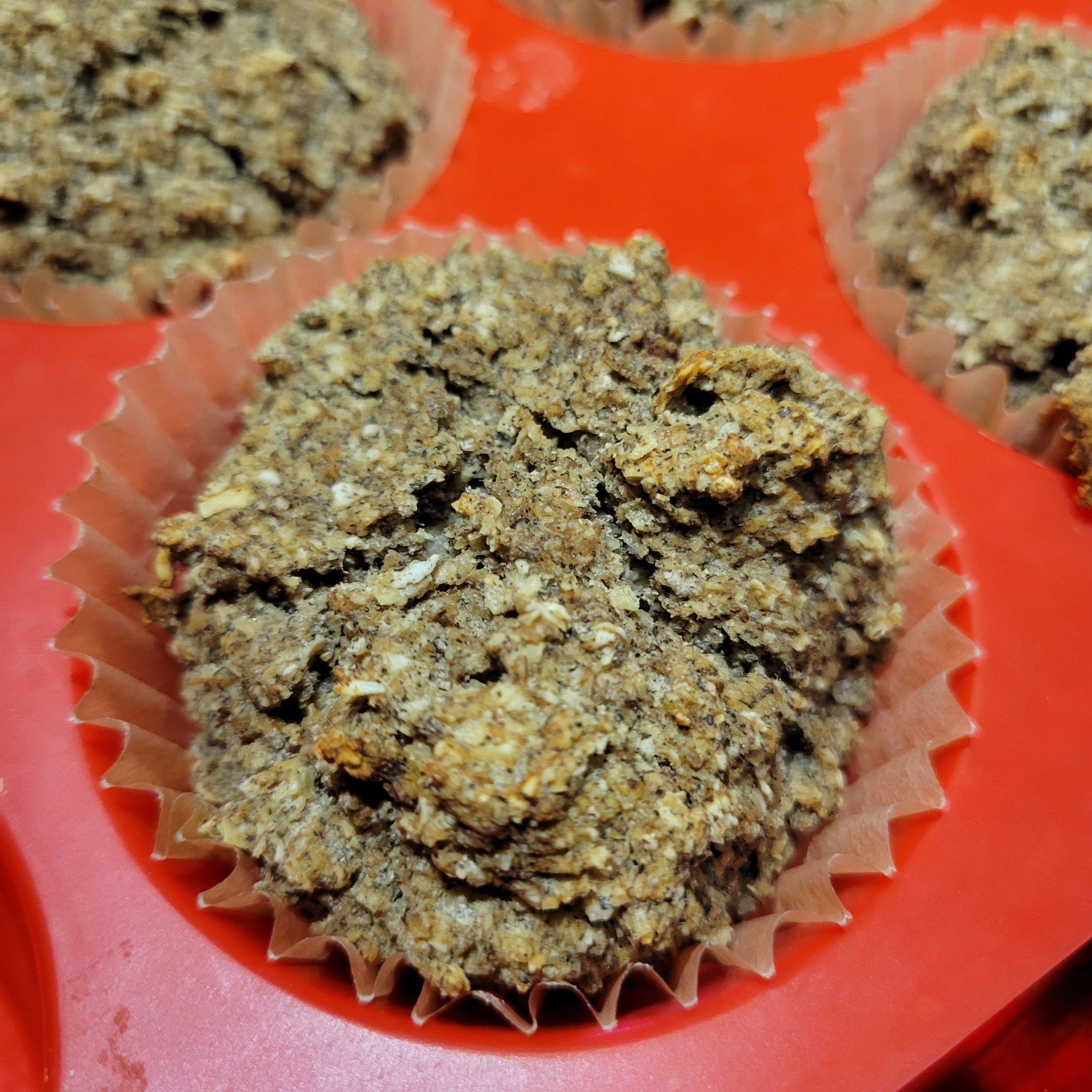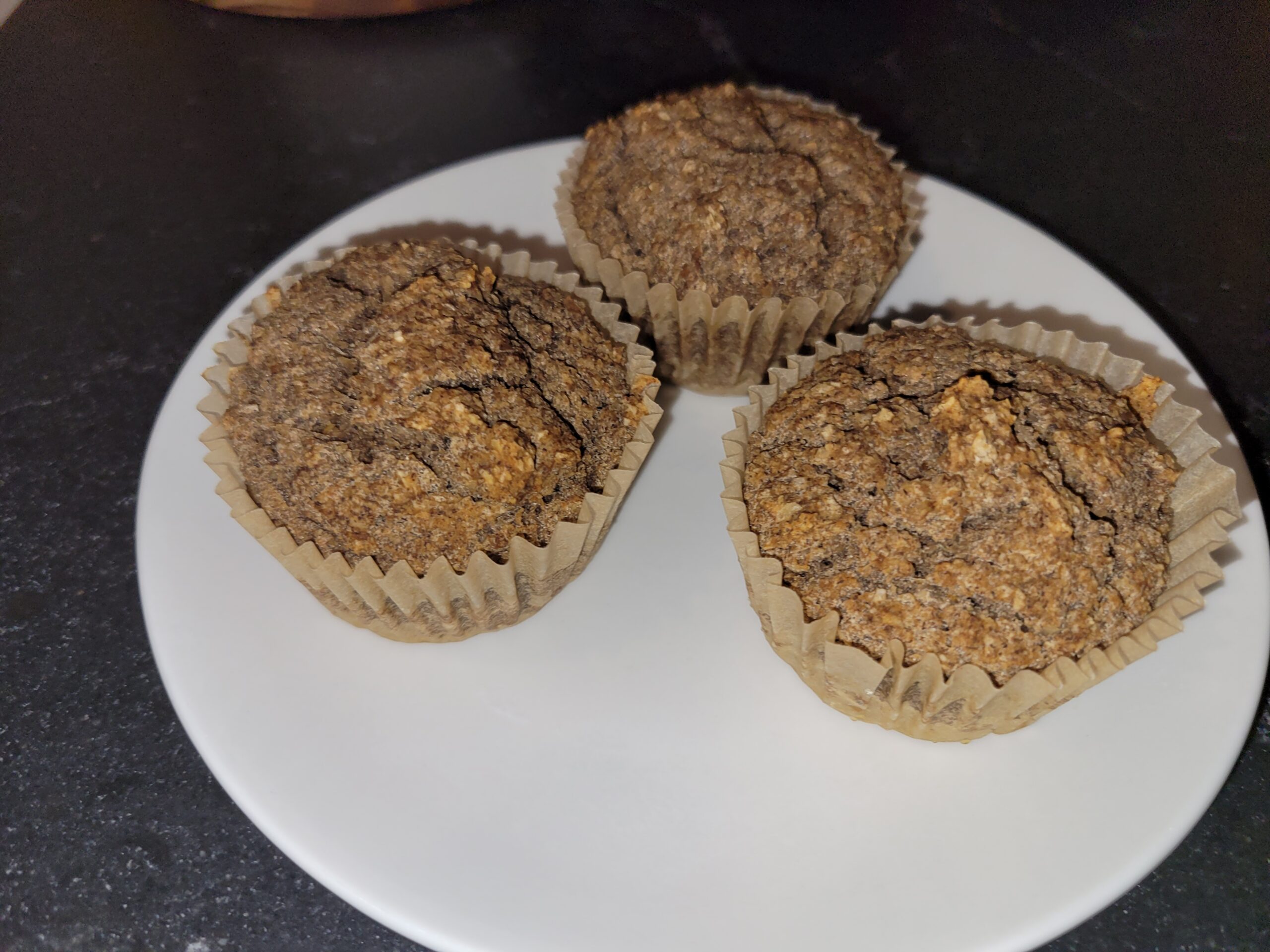

Tag: IBS


Vegan and Gluten Free Fiber Muffins
11/19/2023
If you have IBS or constipation, almost every university hospital seems to provide the constipation recipe of mixing prune juice, applesauce, and bran (either wheat or oat, depending on your gluten ability) and eating a few tablespoons of “prune pudding” daily. The problem for people like my Autistic Kiddo with IBS-Mixed is that, with sensory sensitivities, this texture may not be tolerable. (My kiddo declared it too much in appearance like throw up to even be able to smell or try it.)
So here is my texture correction: mixing the needed ingredients, with no additional sugar, flax instead of eggs, and GF flour (I chose buckwheat) into a simple muffin. Eating one per day is approximately the same as a daily serving of the “prune pudding” recipe, no sensory issues included!
Makes 12 – 15 muffins
2 tablespoons ground flax meal
¼ cup warm (not hot) water
Let it sit for 5 minutes.
Then whisk with a fork.
Flax eggs
1 ¼ cup unsweetened prune juice
1 cup applesauce
2 teaspoon vanilla extract
Mix until smooth and creamy.
Add:
2 teaspoon baking powder
½ teaspoon baking soda
½ teaspoon cinnamon powder
2 cup oat bran
1 cup buckwheat flour
Mix well.
For muffins: pour into muffin cups. I like parchment paper cups in a silicone muffin pan.
Bake for 25 minutes. Time may vary slightly depending on weather and humidity. Use a toothpick to test if done – toothpick will come out clean when done.
ALLERGY STATEMENT:
Gluten-Free, Milk/Dairy Free, Egg-Free (VEGAN), Tree Nut Free, Fish Free, Crustacean Shellfish Free, Peanut Free, Soy Free, and Sesame Free

Vegan and Gluten Free Banana Fiber Muffins
If you have IBS or constipation, almost every university hospital seems to provide the constipation recipe of mixing prune juice, applesauce, and bran (either wheat or oat, depending on your gluten ability) and eating a few tablespoons of “prune pudding” daily. The problem for people like my Autistic Kiddo with IBS-Mixed is that, with sensory sensitivities, this texture may not be tolerable. (My kiddo declared it too much in appearance like throw up to even be able to smell or try it.)
So here is my texture correction: mixing the needed ingredients, with no additional sugar, flax instead of eggs, and GF flour (I chose buckwheat) into a simple muffin. Eating one per day is approximately the same as a daily serving of the “prune pudding” recipe, no sensory issues included! A little banana added to make it a little sweeter and softer for an even more IBS-Kid-Friendly recipe!
11/19/2023
Makes 18 muffins
2 tablespoons ground flax meal
¼ cup warm (not hot) water
Let it sit for 5 minutes.
Then whisk with a fork.
Flax eggs
1 ¼ cup unsweetened prune juice
1 cup applesauce
pureed bananas
2 teaspoon vanilla extract
Mix until smooth and creamy.
Add:
2 teaspoon baking powder
½ teaspoon baking soda
½ teaspoon cinnamon powder
2 cup oat bran
1 cup buckwheat flour
Mix well.
For muffins: pour into muffin cups. I like parchment paper cups in a silicone muffin pan.
Bake 45 minutes. Time may vary slightly depending on weather and humidity. Use a toothpick to test if done – toothpick will come out clean when done.
ALLERGY STATEMENT:
Gluten-Free, Milk/Dairy Free, Egg-Free (VEGAN), Tree Nut Free, Fish Free, Crustacean Shellfish Free, Peanut Free, Soy Free, and Sesame Free